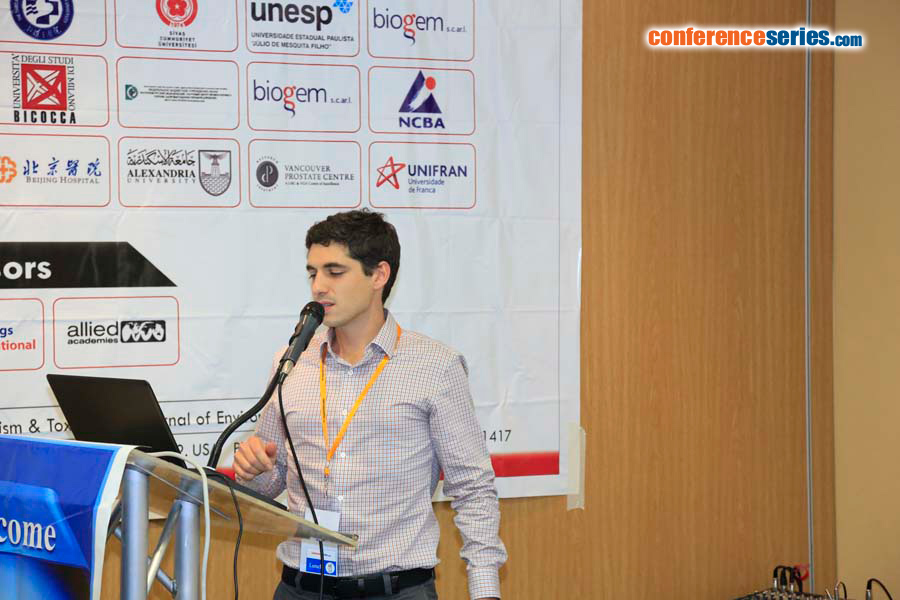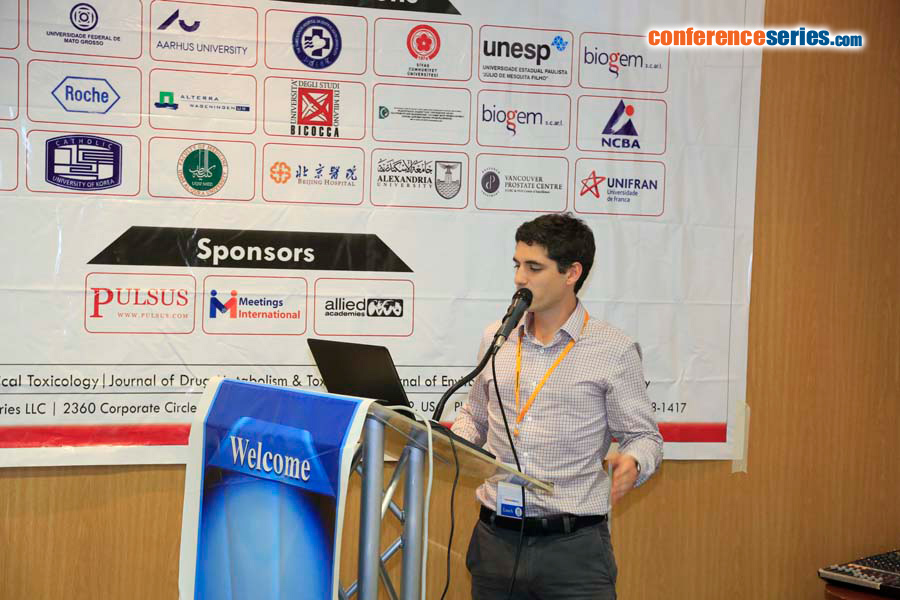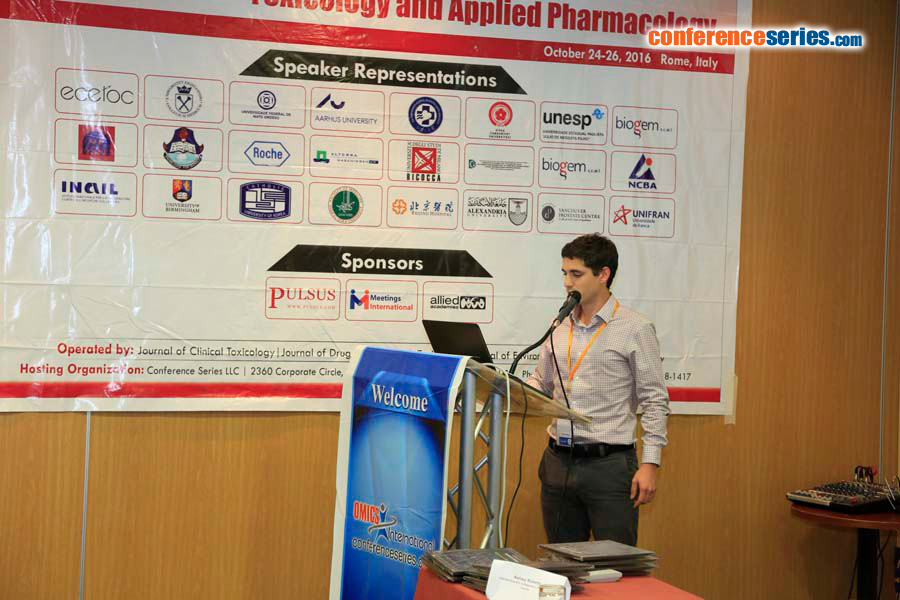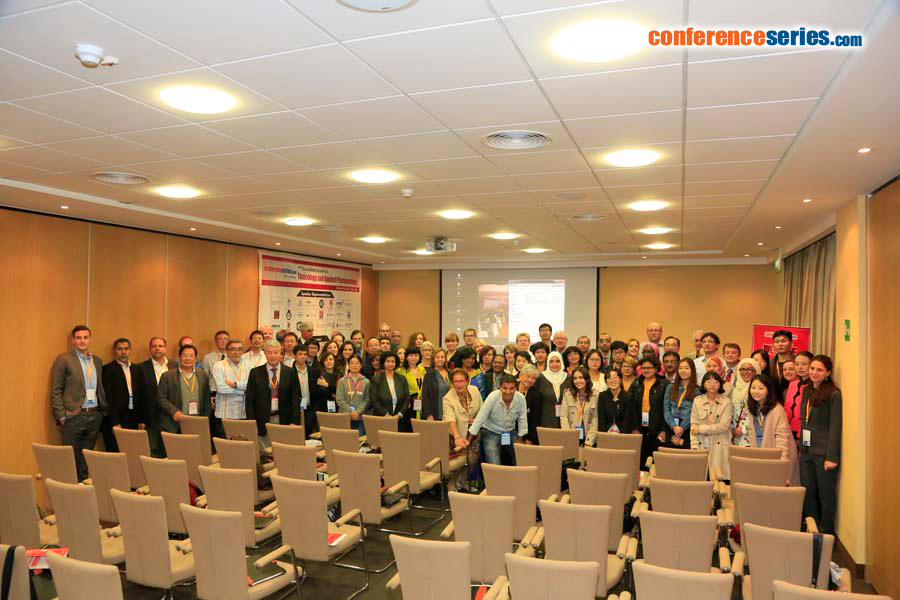Samuel Legeay
University of Angers, France
Title: The insect repellent N,N-diethyl-m-toluamide (DEET) induces angiogenesis via allosteric modulation of the M3 muscarinic receptor in endothelial cells
Biography
Biography: Samuel Legeay
Abstract
The insect repellent N,N-diethyl-m-toluamide (DEET) has been reported to inhibit AChE (acetylcholinesterase) and to be associated with increased risk of cancer. In the present paper, we demonstrate that DEET specifi cally stimulates
endothelial cells that promote angiogenesis which increases tumor growth in vivo. DEET activates cellular processes that lead to angiogenesis including proliferation, migration and adhesion. Th is is associated with an enhancement of NO production and VEGF expression in endothelial cells. M3 silencing or the use of a pharmacological M3 inhibitor abrogates all of these effects which reveals that DEET-induced angiogenesis is M3 sensitive. Th e experiments involving calcium signals in both endothelial and HEK cells overexpressing M3 receptors, as well as binding and docking studies demonstrate that DEET acts as an allosteric modulator of the M3 receptor. In addition, DEET inhibited AChE which increased acetylcholine bioavailability and binding to M3 receptors and also strengthened pro-angiogenic eff ects by an allosteric modulation.
Speaker Presentations
Speaker PPTs Click Here





